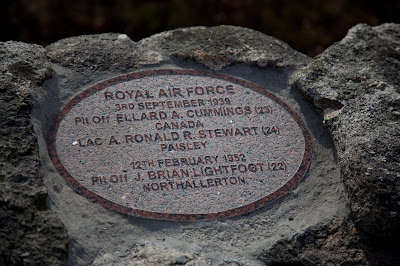Bottom Prices – by Duncan Harley
You couldn’t make it up really. Andy Drinkwater, a spokesman
for the Water Research Centre, is reported in today’s Times Scotland as saying
that “a lot of the products that are marked as flushable are not really
flushable.”
Seemingly sewers across the land are being bunged up with a
mixture of fat balls and bum wipes.
Breakfast news on the BBC picked it up earlier today, the
story not the blockage, and steam radio followed hot on the heels. Now, on
reading today’s printed media, I discover that this tale of toilet woe has bled
its way onto the news pages.
The issue, of course, pales into insignificance when set head
to head with the plague of plastic which lines our shorelines. That international
disgrace needs sorting and sorting fast before the good old fish-supper becomes
the good old plastic fish and chips. I kid you not. The residue of those foamy
micro-plasticised hour-long showers has come back to haunt us big-time.
A recent study published in the journal Scientific Reports concluded
that “The widespread distribution of microplastics in aquatic bodies has
subsequently contaminated a diverse range of aquatic biota, including those
sold for human consumption such as shellfish and mussels therefore, seafood
products could be a major route of human exposure to microplastics.” And
now, as if to smoke the micro-plastic mirrors we have the flushable, or more
likely, non-flushable wipe story.
Seemingly manufactures are to blame. But of course, the
corporate lawyers are on the case and a stern rebuff looms. The media are being
careful with the story and accusations of mislabelling are about as far as they
are currently prepared to go.
Headlines stating “Nine out of ten ‘flushable’ wipes do not
break down” are about as far as it goes. There are no screams of “Bogged down”
or “Dirty profits”. Compensation for blocked municipal sewers looks unlikely
and as usual the end-user will have to foot the bill.
Of course, it’s different in Chile. The little publicised ‘Chilean
Toilet Paper Scandal’ enraged the nation and led to class action compensation
claims totalling $150m with every citizen over the age of 18 able to claim back
7,000 pesos from the so-called "toilet paper cartel" of CMPC and SCA.
Jointly the two loo paper companies once controlled 90 percent of the Chilean
toilet-paper market. At the time the scandal broke in 2015 each benefited from some
$400 million in annual sales nationally at inflated prices and with almost zero
competition.
The compensation package amounted to 78 percent of CMPC's dirty profits. SCA, which has not reached an agreement with consumer groups, copped an $18 million fine.
A whopper of a fine some might say and one which resulted a pay-out worth a whopping $11 for each and every Chilean citizen.
The compensation package amounted to 78 percent of CMPC's dirty profits. SCA, which has not reached an agreement with consumer groups, copped an $18 million fine.
A whopper of a fine some might say and one which resulted a pay-out worth a whopping $11 for each and every Chilean citizen.
Maybe a class action is required in the UK to challenge the
marketing of those so-called flushable wipes sold by companies’ intent on
ignoring easily met environmental standards. How hard can it be to design
toilet paper after all?
Mind you, at the end of the day, what’s wrong with using
your hand I say. After all, and before shaking hands with anyone else on the
planet, you can always wash it under the tap.
Duncan Harley is author of The
A-Z of Curious Aberdeenshire plus the forthcoming title: The
Little History of Aberdeenshire - due out in March 2019











Comments
Post a Comment